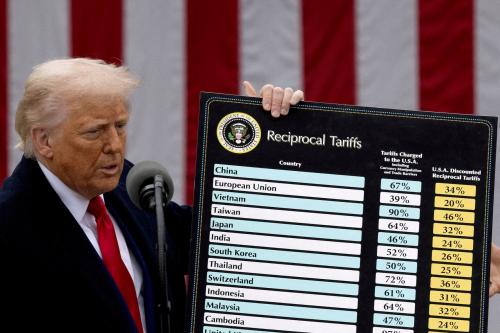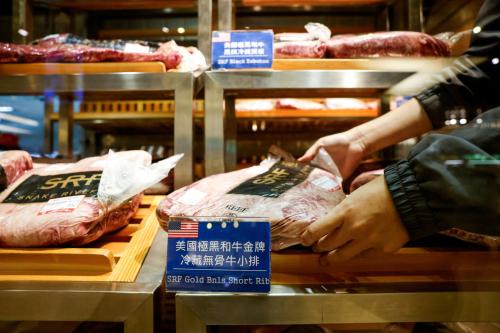Last Friday, the Senate approved by a comfortable margin (62-37) the renewal of Trade Promotion Authority (TPA). Without TPA, President Obama cannot close on the largest trade deal of his presidency, the Trans-Pacific Partnership (TPP). A less noticed but still critical vote was on the fate of the amendment, attached to the TPA bill by Senator Rob Portman.
The Portman amendment mandated enforceable rules to combat currency manipulation. The fact that this amendment was defeated with only the narrowest of margins (48 to 51) should give little comfort as the House moves next to decide the fate of TPA. The proponents of Senator Portman’s misguided approach are well represented in that chamber. Portman may refer to his amendment as a “vitamin,” but its only salutary effects will be felt by the foes of the TPP. Passage of this amendment would doom the prospects of concluding a trade agreement and would certainly weaken American leadership.
Yes, manipulating the value of a currency to reap commercial advantage by lowering the price of exports is a bad practice. It only encourages similar beggar-thy-neighbor policies from one’s trading partners and ultimately leaves everyone worse off. But the “fixes” advocated by proponents of attaching enforceable restrictions against currency manipulation to TPA or TPP are deeply flawed. They will not eradicate currency manipulation, but they will most certainly sink the TPP—the American initiative with the most potential to reassert U.S. leadership at a critical moment. The central difficulties are the identifying and responding to currency manipulation. Unfortunately, none of three “fixes” to eradicate currency manipulation through trade agreements will get the job done:
- Quantitative Easing: The first idea is to simply label any country that practices quantitative easing (i.e. actively buys securities to expand the monetary supply). Unfortunately, the notion that, say, Japan is a currency manipulator because its quantitative easing policy has weakened the yen, betrays a blatant double-standard. It was the U.S. Federal Reserve that first relied on this unconventional monetary policy. Indeed, Japan has, much like the United States had, good reason to practice quantitative easing for reasons that have nothing to do with currency manipulation, but everything to do with promoting economic recovery.
- Foreign Exchange Reserves: The second idea is that countries with big trade surpluses and large foreign exchange reserves could lose their trade agreement benefits if they increased their reserves beyond what is needed to cover three months’ worth of imports. Contrary to what proponents say, this idea does not faithfully adhere to IMF principles, which clearly state that intent to deliberately lower the value of a currency to boost exports must be established. Once again, there are valid reasons beyond currency manipulation that reserves might increase. And it defies all logic to expect that TPP countries will accept obligations that only apply to them but never the United States (who holds the world’s reserve currency and thus does not need to build fore exchange reserves).
- Countervailing Duties: The final idea is to simply assert that currency manipulation is an export subsidy and thus subject to countervailing duties under World Trade Organization (WTO) rules. Unfortunately, this is not allowed under WTO rules which clearly state that only targeted policies can be subject to punitive tariffs. Penalized countries would challenge this in the WTO dispute settlement procedure and win, forcing the United States to either defy the WTO or abandon this rule. Neither outcome would appreciably improve U.S. international standing or credibility.
Currency manipulation is indeed a problem. But a cure can be worse than the disease. Enforceable rules based on flawed ideas will inflict great damage on the United States and yet fail to address the currency problem. It is now up to the House of Representatives to decide. Will the United States exert international leadership by championing a rules-based economic order or will it turn inward by applying double-standards or contravening the central rules of the Bretton Woods institutions that it helped found? Do we lead or do we put ourselves in time out by engaging in self-sabotage on TPP?
The Brookings Institution is committed to quality, independence, and impact.
We are supported by a diverse array of funders. In line with our values and policies, each Brookings publication represents the sole views of its author(s).



Commentary
Undoing American leadership: The killer currency amendment to the trade bill
May 26, 2015